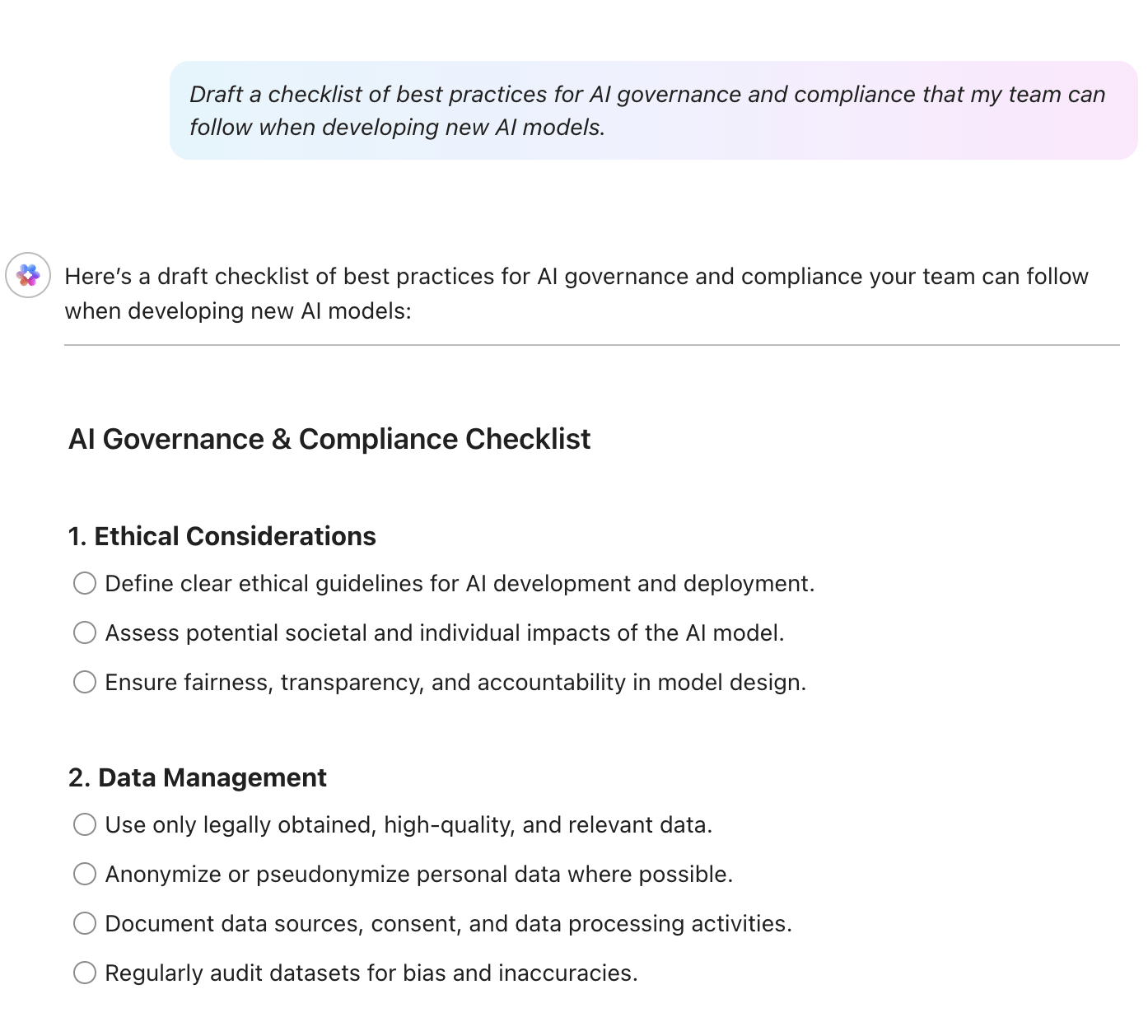
"As businesses rush to integrate AI, many overlook a critical piece: governance. Even the best AI systems can introduce risk, bias, or compliance issues without clear oversight. Still, 56% of executives aren't sure if their company has ethical standards for AI. That uncertainty is avoidable. The solution? AI governance tools that help you manage AI responsibly-with built-in transparency, documentation, and compliance features."
"You must look for these features when choosing an AI governance platform. Bias and risk detection: Integrates an ethical AI governance framework to scan datasets and outcomes, flags potential biases, and offers mitigation suggestions. Transparency controls: Offers clear audit trails and explanations for the generated results and decisions. AI governance templates: Offers customizable AI prompt templates for tracking AI-powered tasks and managing AI regulations and compliance guidelines."
Businesses integrating AI often overlook governance, creating risks such as bias, compliance failures, and unchecked decision-making. Fifty-six percent of executives are unsure whether their company has ethical standards for AI, indicating widespread uncertainty. AI governance tools enable responsible AI management by providing built-in transparency, documentation, and compliance features. Key features include bias and risk detection, transparency controls with audit trails, customizable governance templates, real-time alerts, and regulatory tracking for frameworks like the EU AI Act and NIST AI RMF. Centralized platforms can automate governance workflows, offer dashboards and smart summaries, and provide enterprise pricing with free tiers for basic use.
Read at ClickUp
Unable to calculate read time
Collection
[
|
...
]